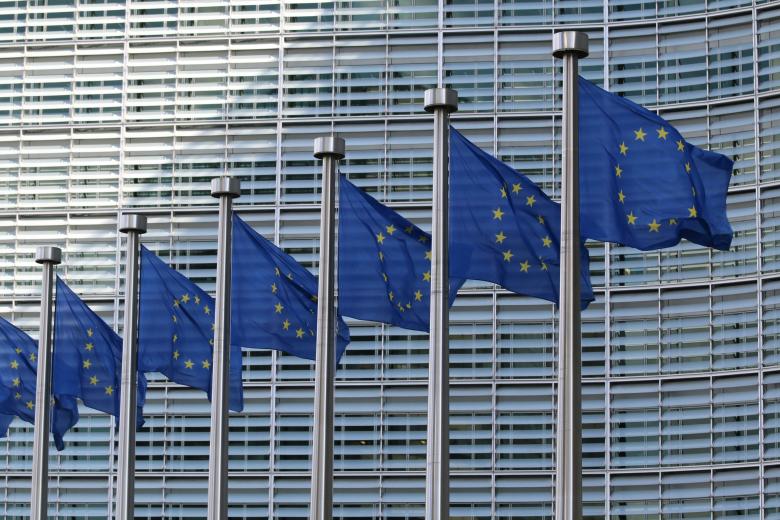The Anti-SLAPP Directive as a Roadmap for SLAPP Targets and the Obstacles Along the Way
To uphold the right to freedom of expression and information, it is essential that ‘public watchdogs’, including journalists, academics, bloggers, human rights activists, and NGOs can expose and highlight social issues, such as corruption and violations of fundamental rights. However, there has been an increase in lawsuits aimed at silencing these persons, known as strategic lawsuits against public participation (SLAPPs), which are usually initiated by wealthy or influential individuals or companies.
Some countries such as the United States of America and Canada have had SLAPP laws in place for some time. However, it took the murder of the Maltese journalist Daphne Caruana Galizia in 2017 and the increase in SLAPPs in Europe for the EU to finally act in 2020. This led to the Anti-SLAPP Directive (EU) 2024/1069, which entered into force on 6 May 2024. This Directive must be transposed by EU Member States (except Denmark) by 7 May 2026. However, the Anti-SLAPP Directive has already been invoked by Greenpeace International, an NGO based in the Netherlands, against the US-based company Energy Transfer.
This blog post will briefly describe the roadmap for SLAPP targets based on the Anti-SLAPP Directive and highlight some of the obstacles. The roadmap basically consists of two routes, depending on whether the SLAPP is brought before courts in the EU or outside the EU. This blog post is based on my findings in the article titled ‘The Anti-SLAPP Directive in the Context of EU and Dutch Private International Law: Improvements and (Remaining) Challenges to Protect SLAPP Targets’ published in Nederlands Internationaal Privaatrecht issue 4 of 2024.
The Subject Matter of the Anti-SLAPP Directive
According to Article 1, the Anti-SLAPP Directive applies to manifestly unfounded claims or abusive court proceedings in civil matters with cross-border implications brought against natural or legal persons on account of their engagement in public participation, referred to as SLAPP targets. Because of the ‘cross-border complications’ requirement, SLAPPs involving purely domestic cases fall outside the scope of the Directive. In accordance with Article 5(1) of the Anti-SLAPP Directive, this requirement is nevertheless fulfilled “unless both parties are domiciled in the same Member State as the court seised and all other elements relevant to the situation at hand are located only in that Member State”. Claims against SLAPP targets can be based on many grounds, such as defamation, infringement of privacy or intellectual property rights.
SLAPP Targets Sued in EU Member State Courts
The first route concerns SLAPPs brought in the courts of EU Member States (except Denmark). In such cases, Articles 6 to 15 provide procedural safeguards for SLAPP targets, such as the possibility of security for the estimated costs of proceedings (Article 10); the early dismissal of manifestly unfounded claims (Articles 11-13); the award of the full costs of proceedings (Article 14), and the imposition of penalties or other equally effective and appropriate measures (Article 15).
However, these procedural safeguards do not effectively address the problem that SLAPP targets can be abusively sued in multiple EU Member States. In particular, if a claim against the SLAPP target is based on online infringement of personality rights or copyright, the SLAPP target can be sued in any Member State where the infringing content is accessible online. This is a consequence of the CJEU’s approach under Article 7(2) of the Brussels I bis Regulation No 1215/2012, which holds that the court of a Member State obtains jurisdiction based on the mere accessibility of the infringing content via the internet in that Member State. To reduce the number of competent courts and increase the predictability as to in which Member State one can be sued in, the recast of the Brussels I bis Regulation should replace the accessibility approach to jurisdiction with the ‘directed activities’ approach to jurisdiction in cases of infringement of personality rights and copyright.
Another challenge lies in the ‘manifestly unfounded claims’ requirement of the ‘early dismissal mechanism’ of Article 11 of the Anti-SLAPP Directive, as courts may interpret this criterion differently due to the lack of a definition in the Directive. In particular, given the different substantive legal approaches among Member States in balancing the right to reputation and the right to freedom of expression, SLAPP targets may not receive equal protection across the EU. Finally, another obstacle arises from the fact that judgments imposing penalties under Article 15 of the Anti-SLAPP Directive may not be recognised or enforced in non-EU states. Unfortunately, the Hague Convention of 2 July 2019 on the Recognition and Enforcement of Foreign Judgments in Civil or Commercial Matters excludes defamation from its scope.
SLAPP Targets Sued in Courts outside the EU
The second route concerns SLAPPs brought in courts outside the EU, referred to as third-country courts. If a third-country court issues a judgment against a SLAPP target domiciled in a Member State, Article 16 of the Anti-SLAPP Directive provides that Member State courts should refuse the recognition and enforcement of that judgment if the third-country proceedings are considered manifestly unfounded or abusive under the law of the Member State of the requested court. According to recital 43 of the Directive, Member States may choose whether to apply the public policy exception or a separate ground for refusal.
Although the grounds of refusal in Article 16 of the Anti-SLAPP Directive provide prima facie legal certainty, they may necessitate an intensive examination of the merits of the case by the requested court, the outcome of which may vary from one Member State to another. However, the legal certainty and protection for SLAPP targets will be enhanced if Member State courts apply by analogy the factors set out by the Court of Justice of the EU in the recent Real Madrid ruling (C-633/22) in order to assess whether there is a manifest infringement of the right of freedom of expression and, therefore, a breach of public policy in the Member State in which enforcement is sought.
If a SLAPP has been brought in a third-country court by a claimant domiciled outside the EU, Article 17(1) of the Anti-SLAPP Directive provides that the court of the Member State in which the SLAPP target is domiciled should have jurisdiction to award damages and costs incurred in connection with the third-country proceedings. From the perspective of EU and Dutch PIL, this new jurisdiction rule appears to improve the protection of SLAPP targets domiciled in the EU. However, according to Article 4(3) of the Anti-SLAPP Directive, the Member State court seised must first assess whether the third-country proceedings “have as their main purpose the prevention, restriction, or penalisation of public participation” and “pursue unfounded claims”. This purpose can be difficult to prove and may require a thorough evaluation of the case’s merits, which may hinder the predictability and sound administration of justice inherent in the jurisdictional phase.
Moreover, the resulting Member State judgments may not be recognised and enforced in third countries. The SLAPP target could therefore be left without any redress unless the SLAPP claimant has assets in the EU (see Recital 44 of the Anti-SLAPP Directive). Finally, Article 17(2) of the Anti-SLAPP Directive states that Member States may limit the exercise of jurisdiction on the basis of Article 17(1) while third-country proceedings are still pending. The lack of uniform conditions for staying proceedings creates legal uncertainty for SLAPP targets.
The Way Forward
The Anti-SLAPP Directive provides important protections for SLAPP targets. However, as this blog argues, a SLAPP target may still be abusively sued in multiple Member States based on online defamation or copyright infringement. This challenge should be addressed in the recast of the Brussels I bis Regulation. The obstacle that Member State judgments imposing penalties or damage to SLAPP targets may not be enforced in third states should be addressed through private international law at the international level. At present, it is important to monitor whether the Anti-SLAPP Directive is properly transposed in the Member States. Unfortunately, the transposition of this Directive in the Netherlands is not progressing smoothly (see my legislative advice to the Dutch Ministry of Justice and Security and my EAPIL blog post).
In conclusion, the Anti-SLAPP Directive, together with the Council of Europe Recommendation CM/Rec(2024)2 on countering the use of SLAPPs, will significantly strengthen protection for SLAPP targets in Europe. A recent report titled ‘Protecting Freedom of Expression and of the Media in the Western Balkans’ has identified these instruments as the minimum ‘European standards’ for the protection of SLAPP targets. To combat SLAPPs globally, it is hoped that these standards will have a ripple effect beyond Europe.
B.M.W. van Houtert
Birgit van Houtert is an Assistant Professor of Private International Law at Maastricht University

-
Clarifying the Legal Status of Online Logistics Platforms in Europe
Our recent study (with Prof. Wouter Verheyen University of Antwerp) explores the legal uncertainties associated with the rise of online logistics platforms, which optimise the flow of goods through digital procurement mechanisms but lack a clear regulatory framework akin to international transport...

-
The Withdrawal of the AI Liability Directive: A Critical Reflection on AI Liability in the EU
On September 28, 2022, the European Commission proposed the AI Liability Directive (AILD) as part of its strategy to create a unified regulatory framework for AI technologies in Europe. The Product Liability Directive (PLD), proposed at the same time, has since garnered acceptance and was adopted...

-
Dissecting Tort Liability for AI-Driven Technologies in Surgery
I had the pleasure discussing my research at the intersection of law, health, and technology at the M-EPLI Talk on 5 November organised by Professors Daniel On and Kate O’Reilly. In the talk, I focused on medical liability for the use of AI-driven technology in medicine. And now in my role as a M...
